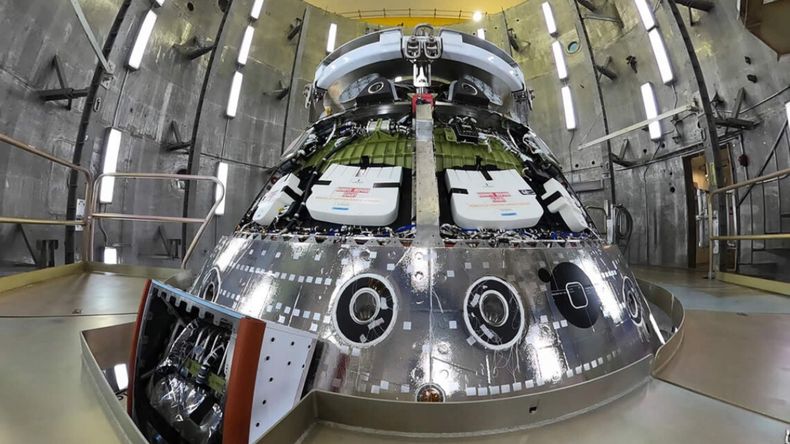After more than half a century without sending people to the lunar environment, The National Aeronautics and space Administration (NASA) took a new step towards the return of its astronauts to space deep. At the beginning of May, the Orion ship was transferred in Florida to be equipped with everything necessary for its journey. Artemis II mission is scheduled for early 2026 and represents the first manned flight of this ambitious campaign. Advances mark the beginning of a key stage in the United States space calendar.
The trip will last ten days and will be a decisive test before the moon on again. The crew will include three astronauts from the American space agency and one of its Canadian pair. Before takeoff, exhaustive tests will be carried out in the life support systems, navigation and communication. Each phase of the process is designed to guarantee the maximum safety of the human team on board.
Santa Berta (59).png

What preparations does NASA have for the Artemis II mission
NASA announced that May 5 Its technicians moved the Orion ship from the Neil A. Armstrong center to a special installation within the Kennedy Space Center. In that place the propeller loading process, high pressure gases, refrigerant fluids and other indispensable fluids will begin so that the ship fulfills its functions during the trip. This operation, which implies high levels of risk, will be carried out remotely from the launch control center, in compliance with strict security protocols.
Once the supply is over, The crew will participate in a fundamental test. The four astronauts will dress their costumes of the crew survival system and will be introduced into the ship to test all the interfaces and controls that will handle during the mission. This essay will verify that all equipment responds properly to the demands of the space environment. Technical validation is indispensable before continuing With the next stages.
Santa Berta (60).png

Then It will be the turn to install the launch abortion systema critical structure composed of engines and mechanisms that will act in case of emergency during ascent. Its function will be to take the crew to a safe place if any anomaly is detected in the SLS rocket. After performing this integration, Orion will be transferred to the vehicle assembly building to be mounted on the launch system, in one of the last phases before takeoff.
During the previous weeks, The ship had already overcome several demanding tests. In the Operations and Verification Center thousands of pieces were integrated, from service modules to technical adapters. Tests were also carried out in vacuum conditions and acoustic tests, with the aim of verifying that all components support space stress.
If the Artemis II mission is successful, a more than important advance for the future of humanity will be achievedsince not only will the ship test, but also the total preparation of the exploration system that seeks to take astronauts a step closer to Mars and future explorations.








